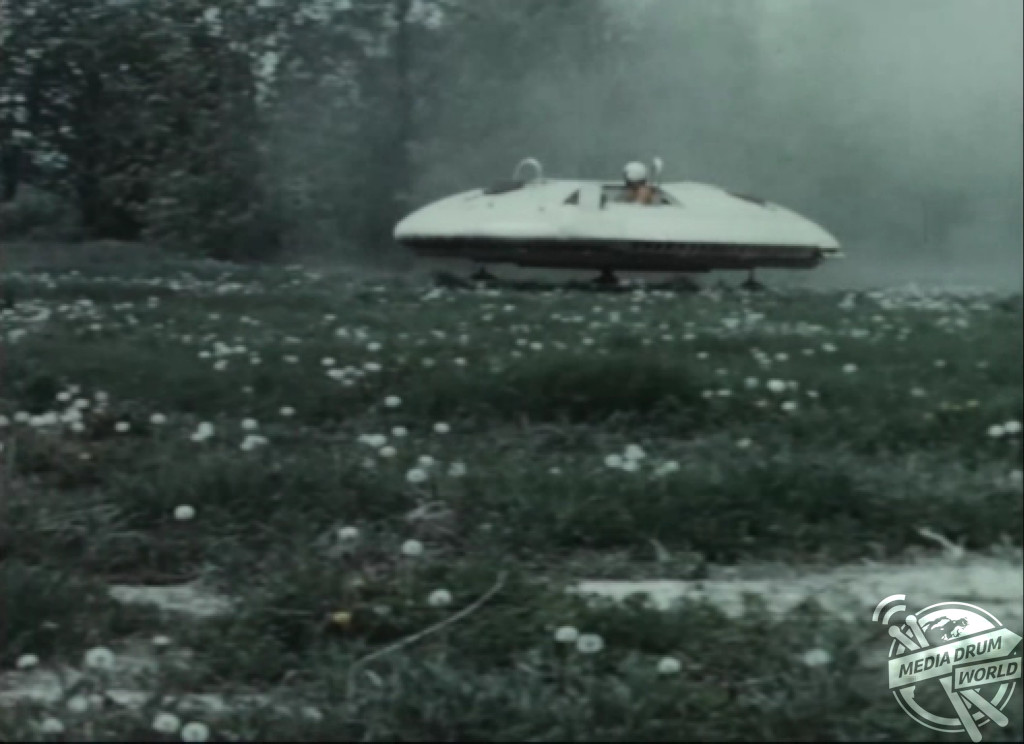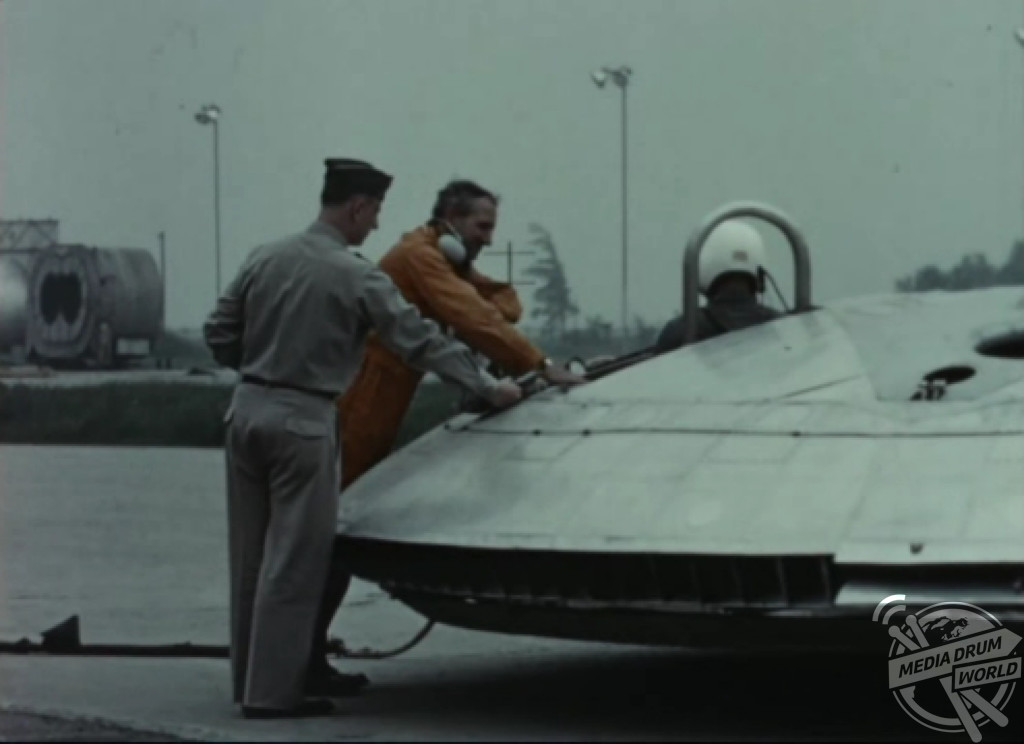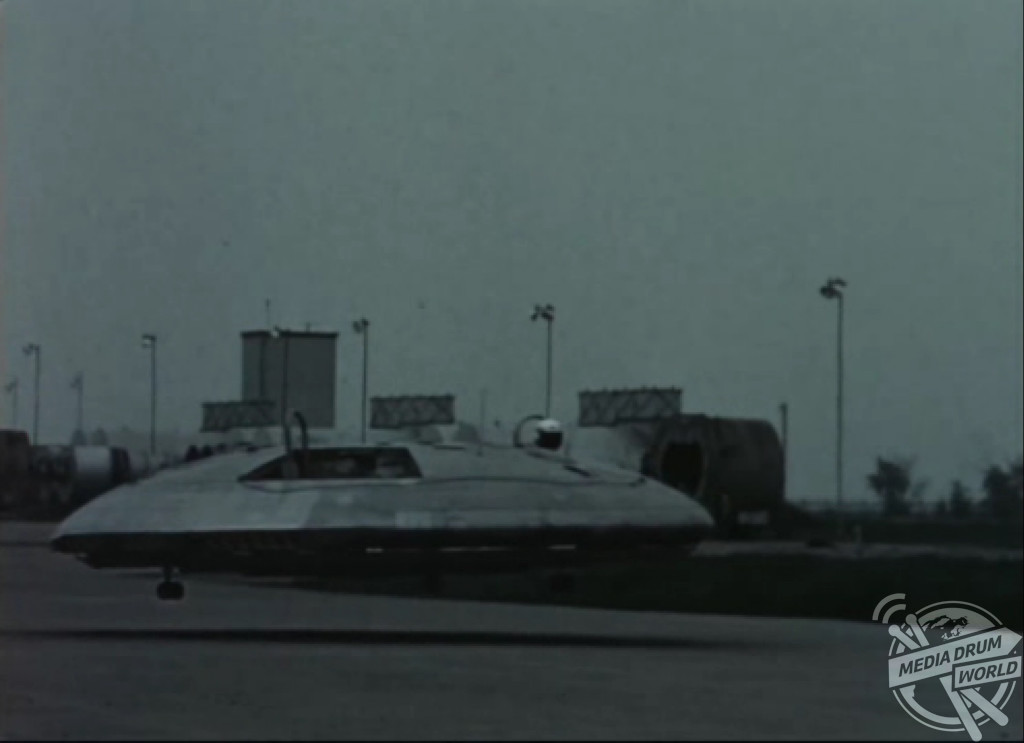By Tom Dare
WATCH the once top-secret efforts by the American military to create a UFO-style alternative to the helicopter as revealed in this eye-opening series of images and video.
The video shows the classified Cold War project, which many in the US armed forces thought would be the next big thing in military innovation, going through a series of test flights between June 1 1960 and June 14 the following year.

The craft, called the Avrocar after the Canadian company that produced it, can be seen hovering a foot or so above the ground as it makes its way around the base, with one pilot at the controls.
Plans for the craft were first drawn up early in the Cold War, with each side desperate to find the next technological innovation. It was powered by a giant central fan, intended to lift it off the ground and propel it upwards.
And the American military had big plans for the Avrocar, with some staggering projections for its performance. However, the reality of the aircraft fell way below expectations.

Designers had hoped that the craft would reach speeds of around 300 mph, with a maximum altitude of 10,000 feet and a range of 995 miles.
But, as can be seen in the video, the craft fell drastically short of the projections. It’s maximum speed never reached above 35 mph, with a paltry maximum altitude of three feet and a range of just 79 miles.
The aircraft was re-financed several times by the American military before funding finally ran out in June 1961. At this point, with performance falling way below expectation and no signs of any immediate improvement, the military cancelled the project.

And, judged against its projections, it’s easy to see why. Objectively speaking the Avrocar was a dismal failure, with several aspects of its design unfit for military use. The craft couldn’t lift itself more than a few feet off the ground without becoming extremely unstable, and its design made high-speed performance tremendously difficult. Moreover, it emitted far too much sound and heat to make it a suitable combat vehicle.
In total the U.S. spent an estimated $10 million on the projection which, by today’s standards, is actually relatively good value for money. It equates to approximately $100 million in today’s money, a drop in the ocean in terms of military expenditure.







